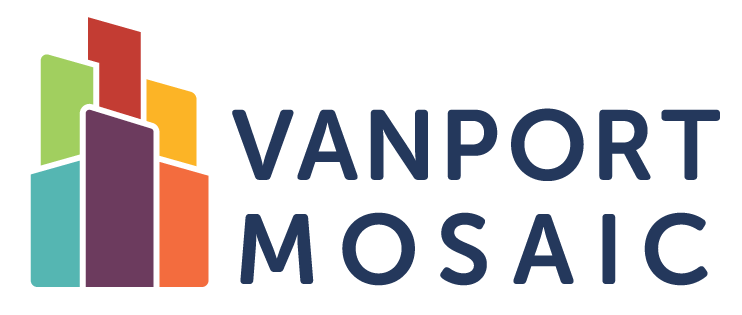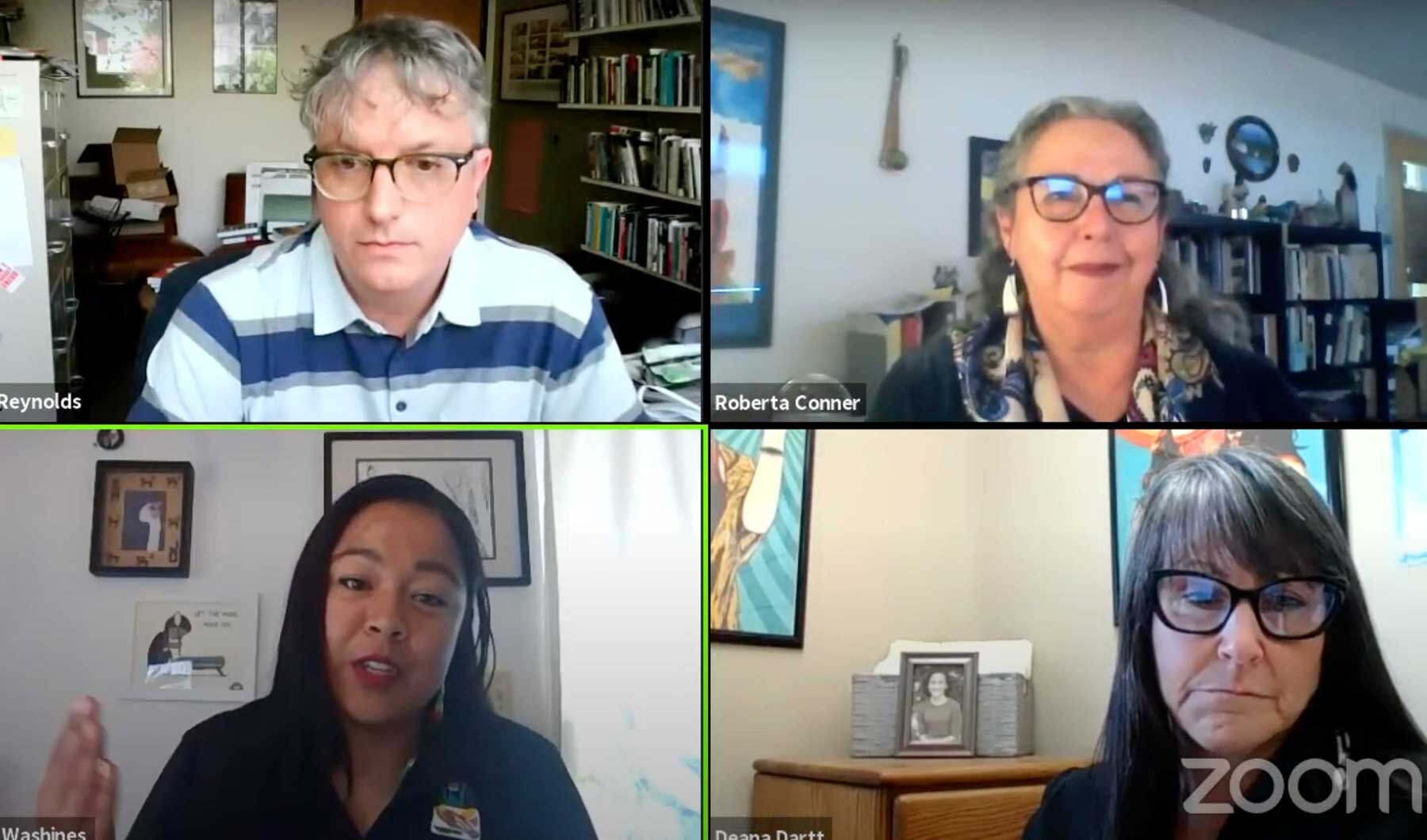The stories WE tell are complex and historically rooted in dominant narratives. As the scholar Michel-Rolph Trouillot said, “The power is in the story,” that is told to and told by the people. Recently, we have seen a groundswell of questions about who gets to define our stories in the public sphere and how WE tell stories.
This year the Vanport Mosaic asks Confluence to consider the WE in “WE THE PEOPLE,” and how we can Remember, Repair, Reclaim, and Re-imagine our collective stories. Confluence is partnering with the Vanport Mosaic to address this question through elevating Indigenous voices. This Story Collection offers Indigenous perspectives on monuments, memorials, healing, and how to tell a more inclusive version of history to the public, through video interviews, short films, podcasts, articles, and more.
Confluence connects you to the history, living cultures, and ecology of the Columbia River system through Indigenous voices. We are a community-supported nonprofit that works through six art landscapes, educational programs, and public gatherings in collaboration with northwest tribes, communities, and the celebrated artist Maya Lin.
This event is free, and self-guided. Explore the stories at your leisure.
Audio
Podcast: The Redheart Memorial Oral History
This podcast is on the Redheart Band and the memorial that is held every year in Vancouver, WA to honor them. The Redheart Band was imprisoned by the US military, during the “Nez Perce Wars”, in 1877 — a little boy died in captivity and 1998, an annual memorial that began to honor him and the Redheart Band.
The Redheart Ceremony Oral History Collection
This is a collection of oral history interviews centering around the Redheart Ceremony, which occurs every year on the grounds of Fort Vancouver, to honor the Nez Perce Redheart Band who were imprisoned there during the Nez Perce Wars.
The Redheart Ceremony
The Redheart interviewees
Videos
Monuments talk, Matt Reynolds, Roberta Conner, Emily Washines, and Deana Dartt.
Full Event: An Evolutionary Moment for Monuments
Communities across the nation have faced a reckoning with their monuments. The last year has seen a groundswell of questions about who gets to define our stories in the public sphere. On April 27th, 2021 we held a conversation to consider modern examples of healthy commemoration of Indigenous history and cultures.
Louie Pitt
Louie Pitt: “The human remains themselves, have a say in this.”
In this excerpt, Louie Pitt relates his experience in repatriation.
Full Event: A Conversation with Sarah Vowell Recording
On May 11th we held a virtual conversation with writer Sarah Vowell to explore the national recalibration that’s underway over how America expresses its stories and values in public spaces.
Stories from the River: Surrounded by History Short Film
The theme of this video is “Surrounded by History.” Four Native individuals talk about history, identity, intercultural relations, respect, and land connection. By Tule Films, with support from the National Endowment for the Arts.
Wilfred and Bessie Scott: Honoring the Redheart Band
Wilfred and Bessie Scott (Nez Perce) talk about their experiences during the Redheart Band memorial ceremony.
Articles + Books
Buckshot for Brains: Mainstream News Coverage of the 9,000-year old Skeleton Snatched from the Columbia River
Social discourse is the way most individuals will have learned about Kennewick Man. In this article, communications scholar Cynthia-Lou Coleman (Osage) dives into the historical pseudoscience roots and present impact of the coverage — through newspapers, blogs, websites, and books– surrounding The Ancient One. This type of coverage has a direct impact on the Indigenous Peoples from the Columbia River
Along the Columbia, Making a Monument of the Land
We are thrilled to share with you this new article in The New York Times featuring Confluence artworks and education programming. The piece promotes a new exhibit by our partners at Whitman College in Walla Walla, Washington that showcases the Confluence archives, including models of the river sites and documents related to the development of Confluence.
Book, Decolonizing Methodologies: Research and Indigenous Peoples by Linda Tuhiwai Smith
Decolonizing Methodologies is a seminal text in Indigenous studies that centers on the tie between colonialism and disciplines such as history.




